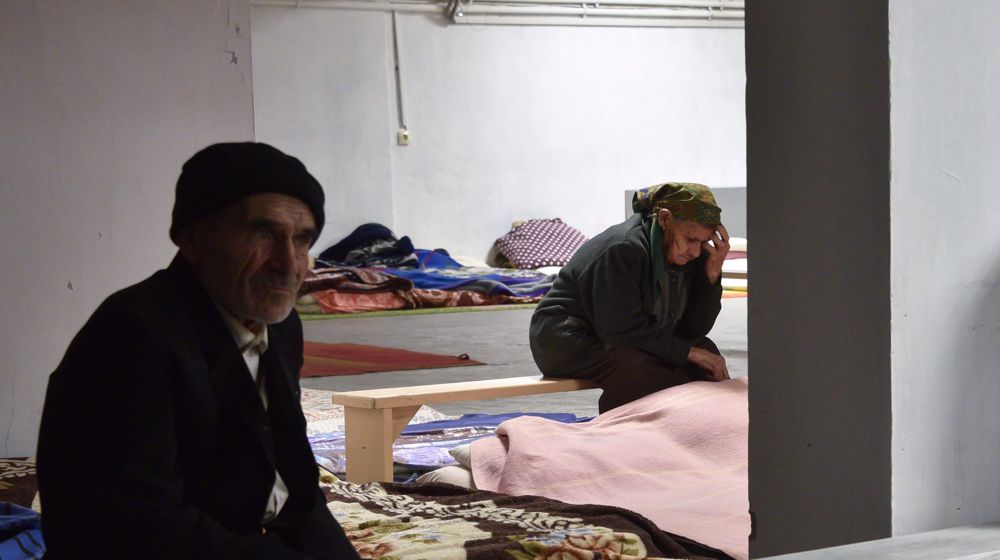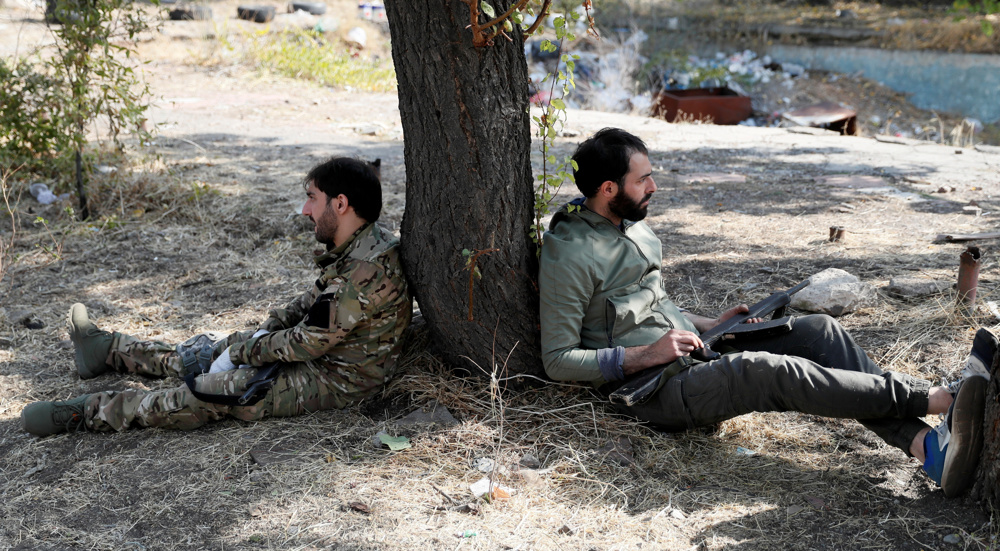UN rights chief warns of possible 'war crimes' in Karabakh conflict, raps indiscriminate attacks on civilian areas
The UN human rights chief has condemned ongoing indiscriminate attacks on civilian areas in and around the disputed South Caucasus region of Nagorno-Karabakh, warning that they may amount to war crimes.
In a statement on Monday, United Nations High Commissioner for Human Rights Michelle Bachelet called on Azerbaijan and Armenia to "take all feasible steps to avoid, or at the very least minimize, the loss of civilian life and damage to civilian infrastructure.”
"Instead, homes have been destroyed, streets reduced to rubble, and people forced to flee or seek safety in basements," she said.
“International humanitarian law cannot be clearer. Attacks carried out in violation of the principle of distinction or the principle of proportionality may amount to war crimes, and the parties to the conflict are obliged to effectively, promptly, thoroughly and impartially investigate such violations and to prosecute those alleged to have committed them."
The UN rights chief further voiced concern over the use of cluster munitions by Armenia and Azerbaijan, urging an immediate halt to the use of banned weapons by both sides.
“Amid deeply troubling reports that cluster munitions have been used by both parties, I call once again on Armenia and Azerbaijan to stop using them, and to join the more than 100 States that have ratified the Convention on Cluster Munitions which comprehensively bans their use,” she said.
She also expressed serious concern about "compelling" and "deeply disturbing" videos that have surfaced which appear to show war crimes being committed.
"Under international humanitarian law, the willful killing of protected persons constitutes a grave breach of the Geneva Conventions and therefore constitutes a war crime," she said.
Azerbaijan and Armenia have been locked in the worst fighting over Nagorno-Karabakh in more than 25 years.
Karabakh is internationally recognized as part of Azerbaijan, but it is held by ethnic Armenian separatists backed by Armenia since 1992, when they broke from Azerbaijan in a war that killed some 30,000 people.
The recent clashes, the worst in decades, erupted on September 27, with each side accusing the other of instigating the fighting.
On Friday, the two sides met international mediators in Geneva amid efforts to reach a ceasefire over the disputed region of Nagorno-Karabakh.
Despite an agreement reached by Armenia and Azerbaijan to refrain from deliberately targeting civilian populations, artillery strikes against populated areas were reported over the weekend.
“I call once again on all parties to the conflict to uphold their obligations under international humanitarian law to protect civilians and civilian infrastructure, abiding by the principles of distinction, proportionality and precaution and avoiding the use of explosive weapons with wide area effects in populated areas,” the High Commissioner stressed.
“As the loss of life continues and the suffering of civilians deepens, I appeal again for an immediate halt in the fighting and urge all parties to abide by a humanitarian ceasefire and engage in negotiations to find a peaceful and durable solution to this conflict that has wrought so much destruction in the region,” Bachelet said.
Hundreds of people have been killed since new fighting erupted in Nagorno-Karabakh.
According to the Azerbaijani government, since late September, at least 91 civilians have been killed in areas under its control. The Armenian government has reported that 45 civilians have been killed in the Nagorno-Karabakh conflict zone, and two in Armenia. Several hundred people, including dozens of children, have been injured. The UN Human Rights Office has not been able to independently verify these figures.
Leader: Iran has no proxy forces in West Asia
US fighter aircraft shot down ‘in friendly fire’ amid aggression on Yemen
Yemeni FM: Israel’s sponsors accountable for ongoing aggression on Sana’a
Eight Palestinians killed as Israel attacks Gaza school, hospitals
VIDEO | Rome, Milan host new protests in solidarity with Palestinians
Dec. 21: ‘Axis of Resistance’ operations against Israeli occupation
Spain jurists demand ties with Israel ties be cut
VIDEO | Press TV's news headlines















 This makes it easy to access the Press TV website
This makes it easy to access the Press TV website